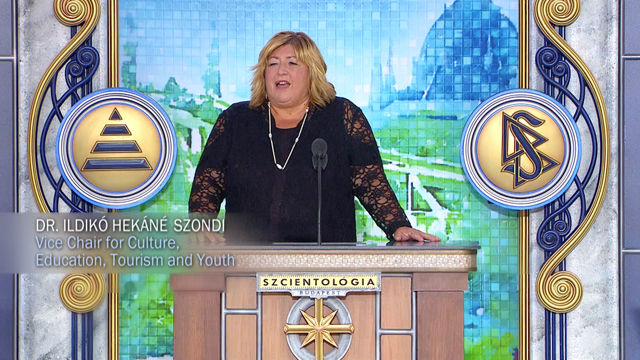Dr. J. Gordon Melton is Distinguished Professor of American Religious History of Baylor University’s Institute for Studies in Religion and founder and director of the Institute for the Study of American Religion. He has written more than 50 books, including multiple editions of Melton’s Encyclopedia of American Religions.
Video transcript:
In each of the last several centuries there have been a set of new religions born. Most of those fall by the wayside. A number of them establish themselves in a small place—one region of the world, one part of a country. A few in each generation, each century, go on to become world religions. In the 20th century there have been several of the new religions that have done that. Of the ones that we have documented, Scientology has probably been the most successful of 20th century new religions. The first decade you measured in one church here, one new country where Scientology has been opened up to. But the closer you get to the present, the faster that growth has proceeded, both in terms of the number of new countries that have been opened to Scientology, and number of individual churches and centers that have opened, and the number of languages in which Scientology teachings have become available.
Scientology has been remarkably successful. There are some of the new religions, other ones that have been in far more countries, but when you actually look at them they don’t have much following. Scientology seems to have a substantial following, at least in the larger countries into which it has moved, and seems to be growing across Europe into Asia, developing around the Pacific Rim, into South Africa and South America. So it’s had a very, very impressive growth rate.
Scientology is different from a lot of religions in that there is a vast body of teachings. There is a vast set of materials to be mastered. Along with mastering the material is a period of self-examination. One has to not just learn the material but integrate it into their whole being. That takes a lot of time. For many people it would be easy just to brush through the basics and not pursue the rest of the teachings. To do that would be to miss a lot of what Scientology is about.
Scientology, like the other successful religious groups, has an appeal to individuals, because it offers them guidance about their everyday life and things that they can do to improve their everyday life. When I stop and think of other groups that have been successful, they tend to be this way also. They provide people with tools and immediate things that they can use that improve their life and that people recognize that it improves their life immediately.
And the Church has shown an ability to move with modern technology, for example. That is very much a part of its life—it’s way ahead of most churches in that way. And it’s moving into so many new areas that it is encountering people with a set of information and data which is entirely new to them and which will be encountered in a whole new way than those of us who have known it in this past generation.
Scientology will make its own future. If it continues in its mission-oriented role in the world and approach to life, then it should do quite well and continue to grow. It’s a big world—Scientology is still relatively small in a world of 6 billion people—so it has huge possibilities. The sky is the limit.


